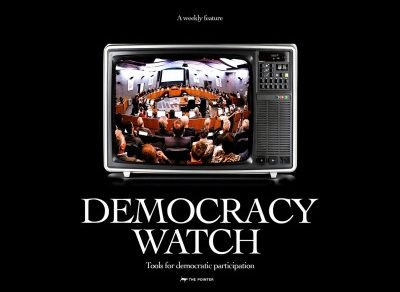Every year Southlanders send 14,110 tonnes of food waste that could be composted to landfill, producing thousands of tonnes of greenhouse gases.
It’s one of the main reasons Dave Kennedy got into composting almost 30 years ago.
“One of the biggest producers of methane is food and plant waste that are put into our [rubbish] tips, and yet it’s a resource,” Kennedy said.
“Instead of viewing it as a waste product, we should think how it could be used as a resource. Compost adds humus to the soil which is really important. We’ve got sandy soil, so compost adds moisture.”
READ MORE:
* Kitchen compost scheme could prevent thousands of tonnes of carbon per year
* Take a trip through the meticulously managed fate of Hamilton’s food scraps
* Compost big player in Nelson annual plan submissions
Nationally, the New Zealand Government estimates about 22% of the country’s total emissions from class one landfills are due to food waste. About 9% of the country’s total emissions are from food waste.
Kennedy uses an "easy-bin” composting system, layering food waste with lawn and tree trimmings in one bin until its full, and then turning it over into a second bin to further break down materials.
He throws a few worms in from his garden, covers it in polythene, and then waits six to eight months to feed the material to his sweet corn, celery, lettuces, peas, broad beans and a plethora of other vegetables that he grows on a quarter acre in Invercargill.
“It just makes sense, the hardest part is getting started,” he said.
South Coast Environment Centre (SCES) education and projects facilitator Nick Kiddey believes introducing composting, like Kennedy’s easy-bin system, at a community level could address both Southland’s organic waste issue and an increasing demand for compost and organic fertiliser.
Under his proposed scheme, residents could drop food waste at a central location in each community to be composted, after which they could collect the compost for free or for a small fee.
Kiddey is investigating introducing the scheme in Riverton, as a pilot for the wider Southland region.
There was currently huge demand for good organic compost, he said, because many people had begun to grow their own food during Covid-19 lockdowns in 2020 and 2021.
“Here at the Environment Centre we’ve been inundated with people wanting to grow their own food … [so] it seems timely to introduce a scheme like this.”
Providing community led composting schemes was not a new step for councils to undertake, Kiddey said.
In Nelson, initial results from the Nelson City Council’s food waste trial last year showed it would divert 3000 tonnes of food waste from landfill each year, and prevent production of 2850 tonnes of methane and about 1500 tonnes of carbon dioxide.
The Government is consulting on its Transforming Recycling proposal, which flags a container return scheme, improvements to household kerbside recycling including kerbside food scrap collection and the mandatory separation of business food waste as policies to address the organic waste issue.
However, Kiddey believed introducing community-led composting schemes before central Government regulations would be beneficial given the emissions that would be produced from transporting food scraps from across Southland to one central location.
“There are so many benefits … community compost in action doesn’t just address waste … the regional Auckland composting network found they were hubs of learning, employment and social cohesion,” he said.
“There’s a real opportunity to support farmers and landowners with composting … instead of burning, or throwing it [organic waste] into landfill.”
© 2022 Stuff Limited




